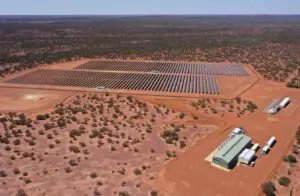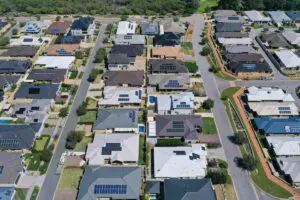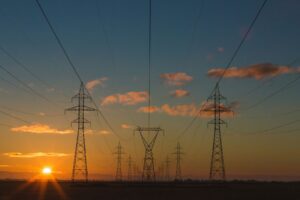The country’s solar network could be exposed to hacking risks from overseas, the federal opposition has warned.
The coalition said a review of solar systems found nearly 60 per cent of smart inverters, which connect solar panels to the internet, had been made by Chinese firms that fall under the country’s national intelligence laws.
Opposition energy spokesman Ted O’Brien said the inverters made by the companies could be taken over by Chinese officials for spying purposes, due to them being under the foreign laws.
“Energy security is national security,” he said.
“Providing affordable and reliable energy that is free from foreign interference should be first order priorities of government, and Labor is failing on all fronts.
“Nothing is more important than guaranteeing Australia’s security and the electricity grid is central to this.”
Opposition home affairs spokesman James Paterson, who oversaw the review, said the number of inverters in the energy grid would rise due to the government’s renewable energy target of 82 per cent by the end of the decade.
He said the situation had left the energy grid vulnerable to potential attacks.
“The real danger point comes when these products reach a critical mass, when they reach a significant proportion of our rooftop solar and therefore a significant proportion of our electricity grid,” he told Sky News.
“That could be disrupted by an external party, by a signals intelligence agency like the People’s Liberation Army’s cyberspace force or the Ministry of State Security cyber hacking unit.”
However, a spokesman for Home Affairs Minister Clare O’Neil said the government was working to identify potential threats to national security.
“(The threats) have been ignored for the last decade under a government which was asleep at the wheel on cyber security and the need to protect the infrastructure that Australians rely on every day,” the spokesman said.
“The opposition and Senator Paterson should explain to the Australian people how their government turned a blind eye to procurement from high-risk vendors for a decade.”
Assistant Climate Change Minister Jenny McAllister told Sky News there were issues with supply chain concentration across the renewables sector.
“It’s why we are so focused on looking at ways that we can expand our own domestic manufacturing capability, because we shouldn’t be so reliant on a single source for any aspect of a critical element of our national infrastructure,” she said.
AAP










